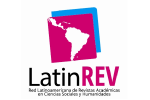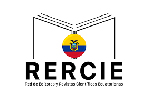Indigenous Justice in the community of Tuntatacto (Ecuador): moral or right
DOI:
https://doi.org/10.18537/iuris.18.01.11Keywords:
indigenous justice; infringement; Rights; culture; conduct; crime.Abstract
This text analyzes the case of the Tuntatacto community, a population that according to its ancestral culture practices indigenous justice processes about certain behaviors that are considered crimes within their "jurisdiction". The analysis of this context allows us to explore the different ways of applying indigenous justice. Although these practices tend to violate the human rights of the inhabitants, it is also true that they must receive a penalty for the commission of a specific crime. Which constitutes a question on the application of Indigenous Justice instead of Ordinary Justice and the opposition to human rights. The Ecuadorian Constitution accepts the validity of the legal systems of the Indigenous Peoples existing in their territories. This recognition implies a series of challenges and tasks, among which is the issuance of secondary legislation that regulates the mechanisms by which the indigenous jurisdiction will be related to the ordinary jurisdiction. When talking about the communities that belong to Ecuador we know that it is a multicultural country, in this sense it is necessary to adopt new approaches that solve the aforementioned problem establishing doctrinal principles on which should be based the harmonization in the ordinary justice and indigenous justice. This analysis consists of the interpretation of the law and the interaction on said systems starting from the need to provide training alternatives in legal justice framed in a social formation that allows establishing guidelines for the defense of the principles of justice and respect for the culture of indigenous peoples that contributes to achieving higher levels of social opportunities for citizens
Downloads
References
Alvarez-Gayou, J. (2003). Cómo hacer investigación cualitativa. Fundamentos y metodología.
Assies, W. (1999). El Reto de la Diversidad. Michoacán: El Colegio de Michoacán.
Cabanellas, G. (2003). Diccionario Juridico Elemental. Buenos Aires: Heliasta.
Carlsen, L. (1999). Autonomía indígena y usos y costumbres: la innovación de la tradición. Revista Chiapas, 2-17.
Chávarry, W. (2014). Ética y moral en el Perú incaico. Revista de la Facultad de Derecho y Ciencia Política de la Universidad Alas Peruanas, 303-318.
Chávez, C. (2008). Los jueces de paz en el renovado campo judicial de Cuetzalan: . México: ClESAS.
Código Orgánico de la Función Judicial . (2018). Relaciones de la Jurisdicción Indígena con la jurisdicción ordinaria. Quito: eSilec Profesional.
Constitución de la República del Ecuador. (2008). Justicia Indigena . Quito: Ediciones Legales.
Constitución Politica del Ecuador . (1998). Principios Fundamentales . Quito : Ediciones Legales .
Declaración Universal de Derechos Humanos. (1948). Derechos Humanos. Paris: Universitaria Ramón Areces.
Ecuador Inmediato. (22 de 05 de 2010). ecuadorinmediado.com. Recuperado el 10 de 11 de 2018, de http://www.ecuadorinmediato.com/index.php?module=Noticias&func=news_user_view&id=127017
Ecuador Inmediato. (26 de 05 de 2010). ecudorinmediato.com. Recuperado el 09 de 11 de 2018, de http://www.ecuadorinmediato.com/index.php?module=Noticias&func=news_user_view&id=127223
El Universo. (21 de 05 de 2010). La Cocha decidió no matar a acusado. Recuperado el 10 de 11 de 2018, de https://www.eluniverso.com/2010/05/21/1/1447/aplicara-castigo-muerte.html
Encalada, K. (2011). Racismo en la administración de justicia en el Ecuador. Calamo, 10-15.
Ferrajoli, L. (2008). Democracia constitucional y derechos fundamentales. Trotta, 71-116.
Foucault, M. (1992). La Genealogía y la Historia- En Microfísica del Poder. Madrid: La Piqueta.
Organización Internacional del Trabajo. (1989). Pueblos Indígenas y Tribales. Ginebra.
Piñacue, J. (1997). Aplicación de la justicia autonómica del pueblo Paez. Del Olvido Surgimos para Traer Nuevas Esperanzas. CRIC, 31-52.
Santos, B. (2003). Crítica de la razón indolente. España: 2003.
Santos, B. (2012). Cuando los excluidos tienen Derecho: justicia indígena,plurinacionalidad e interculturalidad. Justicia indígena, plurinacionalidade interculturalidad en Ecuador. Quito: Fundación Rosa Luxemburg/AbyaYala.
Sierra, M. (2004). Interlegalidad, justicia y derechos en la Sierra Norte de Puebla. CIESAS, 115-18.
Soru, M. (2012).






